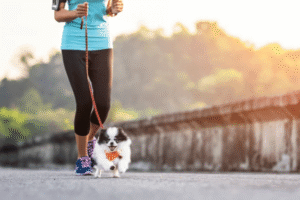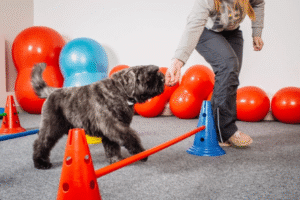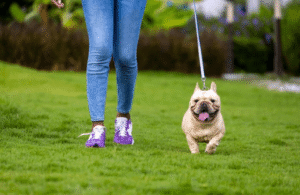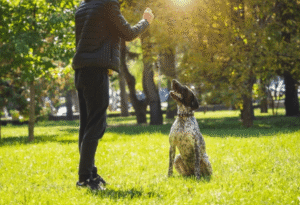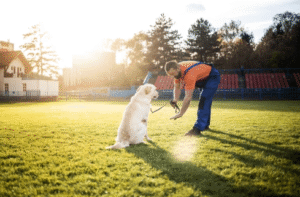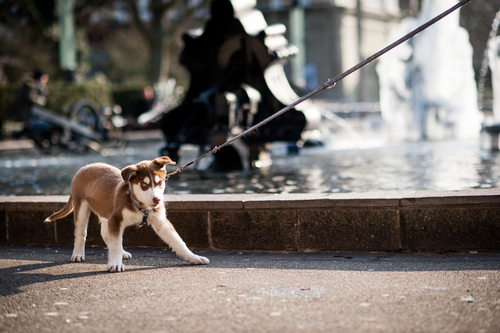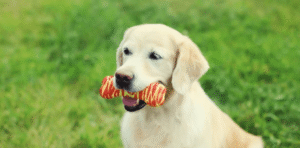
At All Dogs Unleashed Boise, we understand how frustrating destructive chewing can be. If you’re searching for how to stop dog chewing Boise pets struggle with, you’re not alone. Whether you have a teething puppy or a bored adult dog, we’ve helped hundreds of local owners redirect this common behavior successfully.
Why Dogs Chew and How to Stop It in Boise
Chewing is a normal instinct; however, it can turn destructive without the right outlet.
-
Puppies chew to relieve teething pain, which is a natural part of development.
-
Adult dogs may chew due to boredom, stress, or lack of mental stimulation.
-
Additionally, some dogs simply find chewing rewarding and fun.
Understanding why your dog chews is the first step in stopping it effectively.
How to Stop Dog Chewing Boise Homes Face Daily
Manage the Environment to Prevent Chewing
To prevent bad habits before they start, consider managing your dog’s environment carefully. Until your dog reliably chews only approved items:
-
Store shoes, cords, and tempting objects out of reach, as these are easy targets.
-
Set up a “dog-safe zone” with only chew-friendly toys for clear boundaries.
-
Also, use crates or gates when you can’t supervise to reduce unwanted chewing.
This approach keeps your dog successful and your belongings safe.
Provide Chew Toys and Tools to Stop Dog Chewing in Boise
Next, offer toys that satisfy your dog’s need to chew.
-
Use tough rubber toys, frozen teething rings, or long-lasting chews.
-
Additionally, rotate toy options weekly to maintain novelty.
-
Avoid confusing items — don’t give an old sock or shoe, as this sends mixed signals.
Pro Tip: Always make sure chews are the right size and strength for your dog’s breed and age.
Training & Reinforcement: Boise Dog Chewing Solutions
One of the most common behavior questions we hear is how to stop dog chewing Boise owners face with both puppies and adult dogs. The good news is that it’s fixable with a little consistency.
Redirect & Reward: Training Tips to Stop Dog Chewing
When your dog chews the wrong thing, here’s what to do:
-
First, gently interrupt and redirect to a proper chew toy.
-
Then, praise and reward when they make the right choice.
-
Avoid harsh punishments, as they often make things worse or cause fear.
This consistent process builds positive habits over time.
Teach Boundaries to Stop Dog Chewing Behavior
In addition to redirection, teaching boundaries is key.
-
Train your dog with commands like “leave it” and “drop it.”
-
Be sure that everyone in the home follows the same rules and rewards.
-
Also, watch for patterns — like chewing when left alone — and address the root cause.
If you need help with obedience, our Board & Train program is ideal for Boise dogs that need more structure and consistency.
Keep Your Dog Busy: Mental & Physical Stimulation in Boise
A bored dog is often a destructive dog. Therefore, it’s important to meet their mental and physical needs.
-
Schedule daily walks, play sessions, or hikes in Boise.
-
In addition, provide puzzle toys and food-dispensing balls to engage their brain.
-
Regular training also builds focus and reduces anxiety over time.
For teething puppies, frozen wet washcloths can offer soothing relief.
Professional Help for Boise Dog Chewing Issues
Sometimes, chewing is more than a phase — especially if the behavior seems new or excessive.
-
For example, if your adult dog starts chewing suddenly, something deeper could be going on.
-
You might also suspect separation anxiety or dental pain.
We’ve worked with Boise families just like yours to solve these challenges. Visit our About Us page to see why locals trust our balanced approach, or Contact Us to get started with a personalized plan.
AKC Training Tips: Stop Puppy and Adult Dog Chewing
For even more expert info, the American Kennel Club offers helpful guides:
Boise Tip: Outdoor Fun Helps Stop Dog Chewing
Thankfully, Boise’s dog-friendly lifestyle gives you the perfect opportunity to keep your dog active and happy. Try walking the Greenbelt or letting your pup burn energy at a local off-leash park. As a result, you’ll see a calmer, better-behaved dog.
Ready to see real results? Board & Train and get your dog on the path to success.
FAQ
Q: Will my dog grow out of chewing?
A: Not always. Puppies often chew more while teething, but adults need guidance and enrichment to avoid destructive habits long term.
Q: Do anti-chew sprays work?
A: They can help deter chewing. However, they work best when combined with proper training and attractive chew alternatives.
Q: My dog chews when I’m gone — is this anxiety?
A: Possibly. Separation anxiety is a common cause of destructive behavior. Therefore, a professional training program may be the best next step.
Q: How many toys should I rotate?
A: Keep 3–5 toys in rotation. Additionally, swap them weekly to keep your dog interested and reduce boredom.



